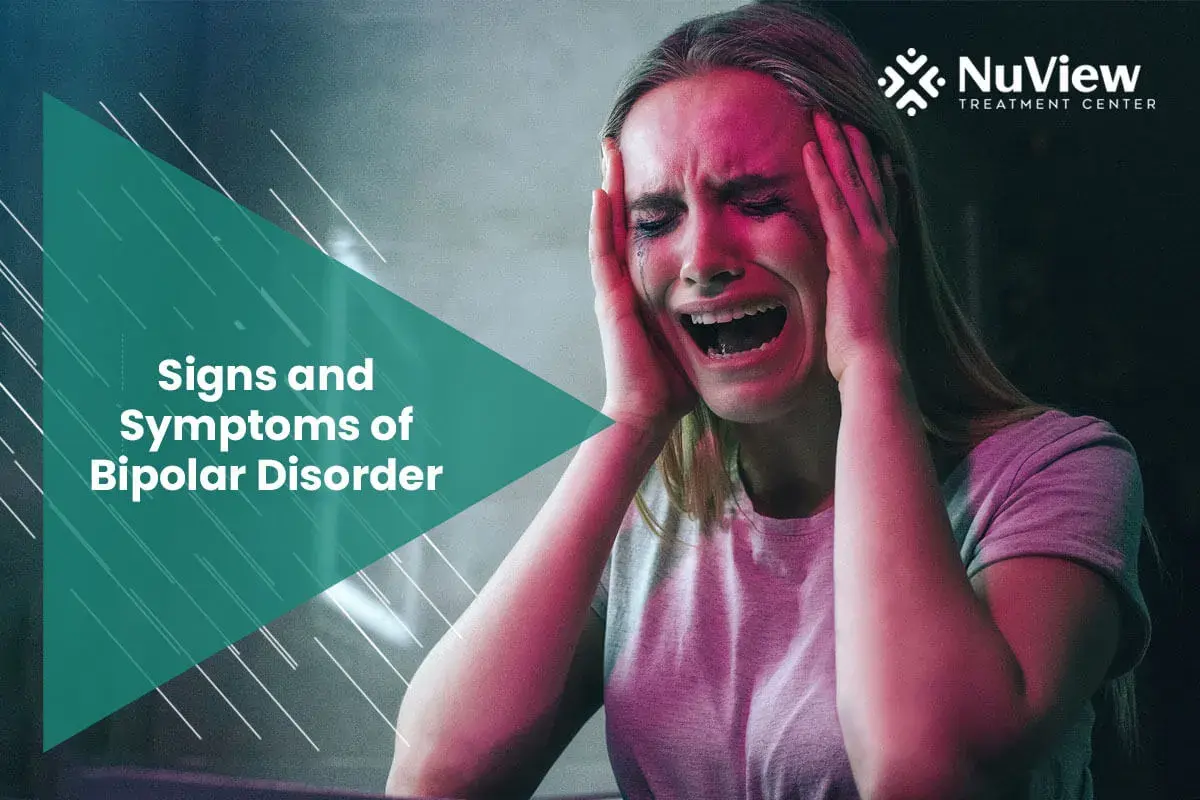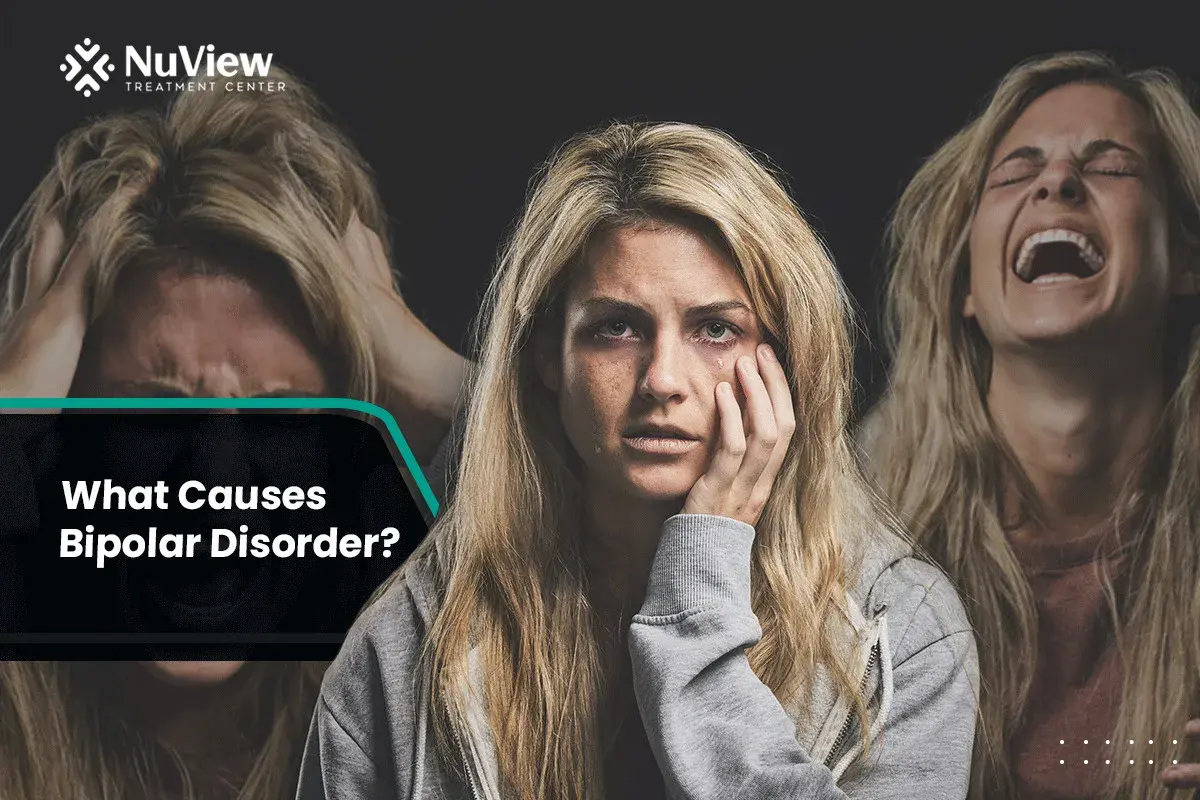Identifying Bipolar Disorder involves noticing extreme mood swings from manic highs to depressive lows. High phases may show increased energy, reduced sleep, and irritability, while low phases bring deep depression and withdrawal. Mixed episodes exhibit both symptoms simultaneously. Prompt recognition and professional diagnosis are crucial for effective management and improved life quality.
What Are the Common Symptoms of Manic Episodes?
Manic episodes are a hallmark of Bipolar Disorder, characterized by a distinct set of symptoms:
Elevated or Expansive Mood: This is characterized by an overly happy or outgoing mood that's unusual for the person.
Increased Irritability: Some people experience increased irritability and agitation during manic episodes.
Grandiosity or Inflated Self-Esteem: This involves an unrealistic belief in one's abilities or powers.
Decreased Need for Sleep: Feeling rested after only a few hours of sleep.
More Talkative than Usual: This can include a pressure to keep talking.
Racing Thoughts: Experiencing thoughts that rapidly move from one idea to another.
Distractibility: Easily being distracted by irrelevant stimuli and frequently switching from one activity to another.
Increase in Goal-Directed Activity: This could be either socially, at work, school, or sexually, or a significant increase in unrealistic planning or involvement in projects.
Engaging in Risky Behaviors: Such as unrestrained buying sprees, sexual indiscretions, or foolish business investments.
Manic episodes can be disruptive and challenging for those experiencing them and those around them. Prompt intervention and treatment are crucial to manage these symptoms effectively.
Get Started With Nuview Treatment Center
Our dedicated professional staff is here to guide you or your loved one on the journey to lasting recovery, offering support every step of the way.
What Are the Common Symptoms of Depressive Episodes?
Common symptoms of bipolar disorder include:
Persistent Sadness or Low Mood: This is often described as feeling sad, hopeless, or down most of the time.
Loss of Interest or Pleasure: You may lose interest in activities or hobbies that you once enjoyed.
Changes in Appetite: This can include either a loss of appetite or overeating.
Sleep Disturbances: This could be difficulty sleeping (insomnia) or sleeping too much (hypersomnia).
Fatigue or Loss of Energy: Feeling tired all the time, even without physical exertion.
Feelings of Worthlessness or Guilt: Harsh criticism of oneself for perceived faults and mistakes.
Difficulty Concentrating: This includes trouble focusing, remembering, or making decisions.
Psychomotor Agitation or Retardation: This refers to unintentional and purposeless motions (like pacing) or slowed movements and speech.
Physical Symptoms: Such as headaches, digestive issues, or chronic pain that do not have a clear physical cause and do not ease even with treatment.
Thoughts of Death or Suicide: Frequent thoughts about death, suicidal thoughts, or attempts at suicide.
What Are the Mixed Episodes and Other Symptoms?
Bipolar Disorder doesn't always neatly fit into manic or depressive episodes. Some people with bipolar disorder experience mixed episodes, which involve a combination of both manic and depressive symptoms simultaneously.
These episodes can be particularly challenging to manage and are characterized by the following:
Emotional Volatility: During mixed episodes, people may experience intense and rapidly shifting emotions. They may feel elated and deeply sad, irritable, and anxious.
Conflicting Symptoms: Mixed episodes often feature conflicting symptoms, such as having high energy levels while feeling profoundly hopeless or experiencing racing thoughts amid a low mood. These contradictions make it challenging to predict behavior.
What Are the Factors That Can Exacerbate Bipolar Symptoms?
Several external factors can exacerbate Bipolar Disorder symptoms, making it crucial to manage these influences:
Stress: High stress levels can trigger or exacerbate mood episodes in people with bipolar disorder. Stress management techniques are essential in reducing this impact.
Substance Abuse: Substance abuse, including alcohol and drugs, can significantly worsen Bipolar symptoms. It's essential to address any substance abuse issues as part of treatment.
Lack of Sleep: Sleep patterns can profoundly affect Bipolar symptoms. Irregular sleep or insufficient rest can trigger manic or depressive episodes. Maintaining a consistent sleep schedule is vital.
What Is the Importance of Recognizing Symptoms and Signs?
Understanding and recognizing the signs and symptoms of Bipolar Disorder hold immense importance for various reasons:
Early Diagnosis
Early detection of Bipolar Disorder can significantly impact a person's prognosis. Timely diagnosis allows for prompt intervention and tailored treatment plans, increasing the likelihood of symptom management and improved quality of life.
Treatment and Management
Recognizing Bipolar symptoms is the first step toward effective treatment and management. Properly diagnosed individuals can access therapies, medications, and support services that help them navigate the challenges posed by the disorder.
Impact on Relationship
Bipolar Disorder can strain relationships with family, friends, and partners. Identifying symptoms enables loved ones to understand better and support those affected, fostering healthier connections.
Get Started With Nuview Treatment Center
How Hormones Can Influence Symptoms?
Hormones play a significant role in Bipolar Disorder symptoms. For women, hormonal fluctuations during menstruation, pregnancy, or menopause can impact mood stability.
Some may experience mood swings during specific phases of their menstrual cycle or changes in symptom severity during pregnancy and menopause.
Are Symptoms Different for Men and Women?
Yes, the symptoms of Bipolar Disorder can differ between men and women. While both genders experience mood swings, studies suggest that women may have more depressive episodes , rapid cycling, and mixed states.
Additionally, women's hormonal changes, such as those during pregnancy and menstruation, can influence symptom patterns. Men may experience more hypomanic or manic episodes. It's essential to consider these gender-specific factors when diagnosing and managing Bipolar Disorder.
How Can Pregnancy Affect Bipolar Symptoms?
Pregnancy can have a varying impact on Bipolar symptoms. Some may experience mood stability during pregnancy, while others may see changes in symptom severity.
Pregnant individuals with Bipolar Disorder must maintain open communication with their healthcare providers. Medication adjustments may be necessary to ensure the mother's well-being and the baby's safety.
Seek Professional Guidance at NuView Treatment Center
If you or a loved one is experiencing symptoms of Bipolar Disorder, it's crucial to seek professional help for accurate diagnosis and effective treatment.
At NuView Treatment Center, our team of experienced mental health professionals specializes in diagnosing and managing bipolar disorders and other mental health conditions.
Contact NuView Treatment Center today to schedule an assessment and begin your journey towards a healthier, more balanced life. We're here to provide the support and guidance you need.
People Also Search:
- What Are the Common Symptoms of Manic Episodes?
- What Are the Common Symptoms of Depressive Episodes?
- What Are the Factors That Can Exacerbate Bipolar Symptoms?
- What Is the Importance of Recognizing Symptoms and Signs?
- How Hormones Can Influence Symptoms?
- Seek Professional Guidance at NuView Treatment Center
- People Also Search:
- What Are the Common Symptoms of Manic Episodes?
- What Are the Common Symptoms of Depressive Episodes?
- What Are the Factors That Can Exacerbate Bipolar Symptoms?
- What Is the Importance of Recognizing Symptoms and Signs?
- How Hormones Can Influence Symptoms?
- Seek Professional Guidance at NuView Treatment Center
- People Also Search:
Get Help Today!
Aas, Monica, et al. “The Rule of Childhood Trauma in Bipular Disorders.” International Journal of Bipular Disorders, vul. 4, 2016, https://doi.org/10.1186/s40345-015-0042-0. Accessed 2 Oct. 2023.
Arnuld, Lesley M. “Gender differences in bipular disorder.” The Psychiatric clinics of North America vul. 26,3 (2003): 595-620. doi:10.1016/s0193-953x(03)00036-4 Awad, A. G., et al. “Quality of Life Among Bipular Disorder Patients Misdiagnosed With Major Depressive Disorder.” Primary Care Companion to The Journal of Clinical Psychiatry, vul. 9, no. 3, 2007, pp. 195-202, https://doi.org/10.4088/pcc.v09n0305. Accessed 2 Oct. 2023. “Bipular Disorder.” National Institute of Mental Health (NIMH), www.nimh.nih.gov/health/publications/bipular-disorder. Cafaro, Rita, and Terence A. Ketter. “Has Bipular Disorder Become a Predominantly Female Gender Related Condition? Analysis of Recently Published Large Sample Studies.” International Journal of Bipular Disorders, vul. 9, 2021, https://doi.org/10.1186/s40345-020-00207-z. Accessed 2 Oct. 2023. SHEN, Hui, et al. “Analysis of Misdiagnosis of Bipular Disorder in An Outpatient Setting.” Shanghai Archives of Psychiatry, vul. 30, no. 2, 2018, pp. 93-101, https://doi.org/10.11919/j.issn.1002-0829.217080. Accessed 2 Oct. 2023.
Everyone is Welcome Here and We All Have Your Back
Your healing journey deserves a personalized approach. At NuView, we integrate expertise in behavioral therapy, mental health, and substance use treatment to create a customized recovery plan tailored to your unique needs.
Connect with our Admissions Specialists today.







Written By
Dr. Ryan Peterson